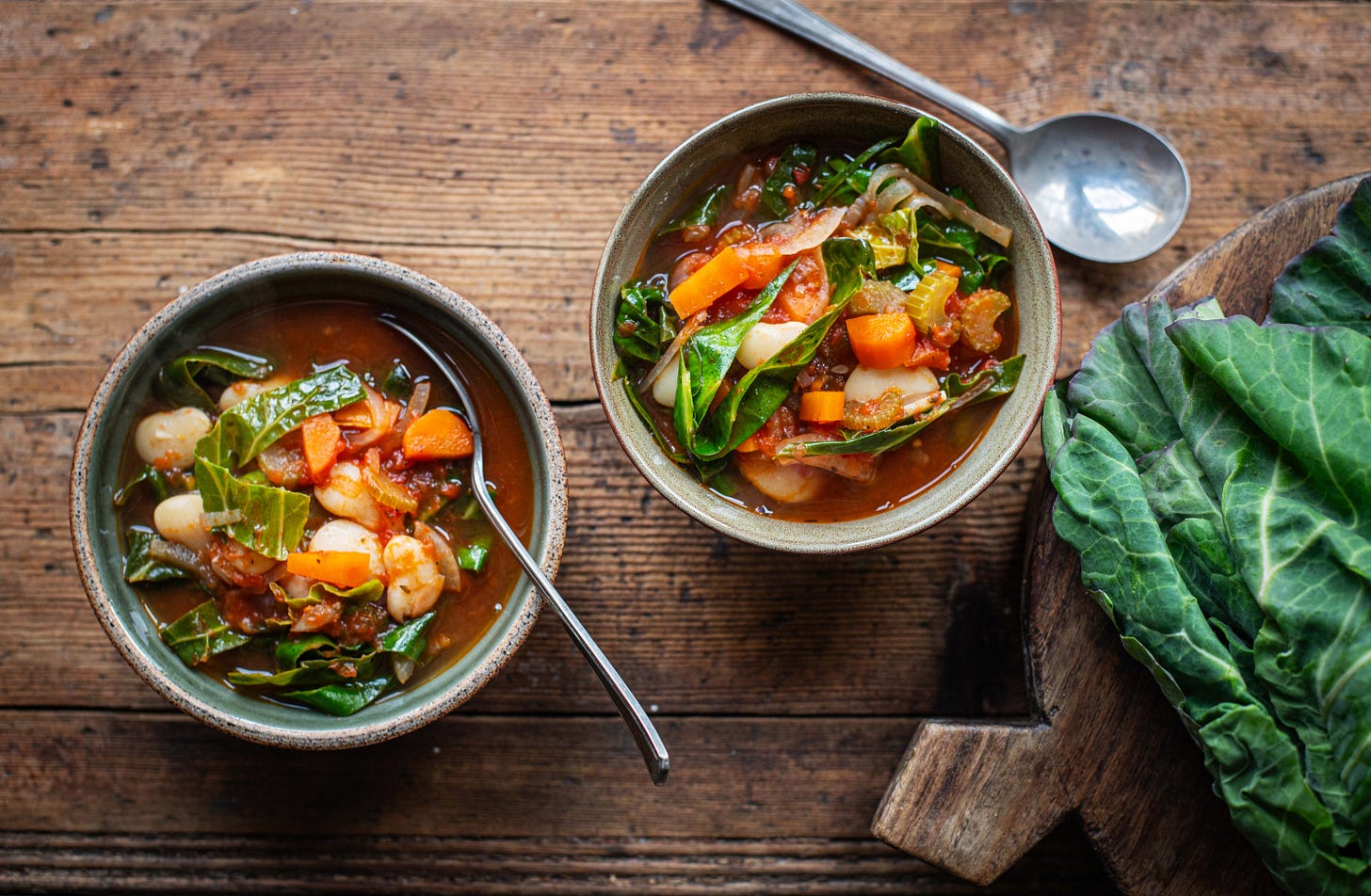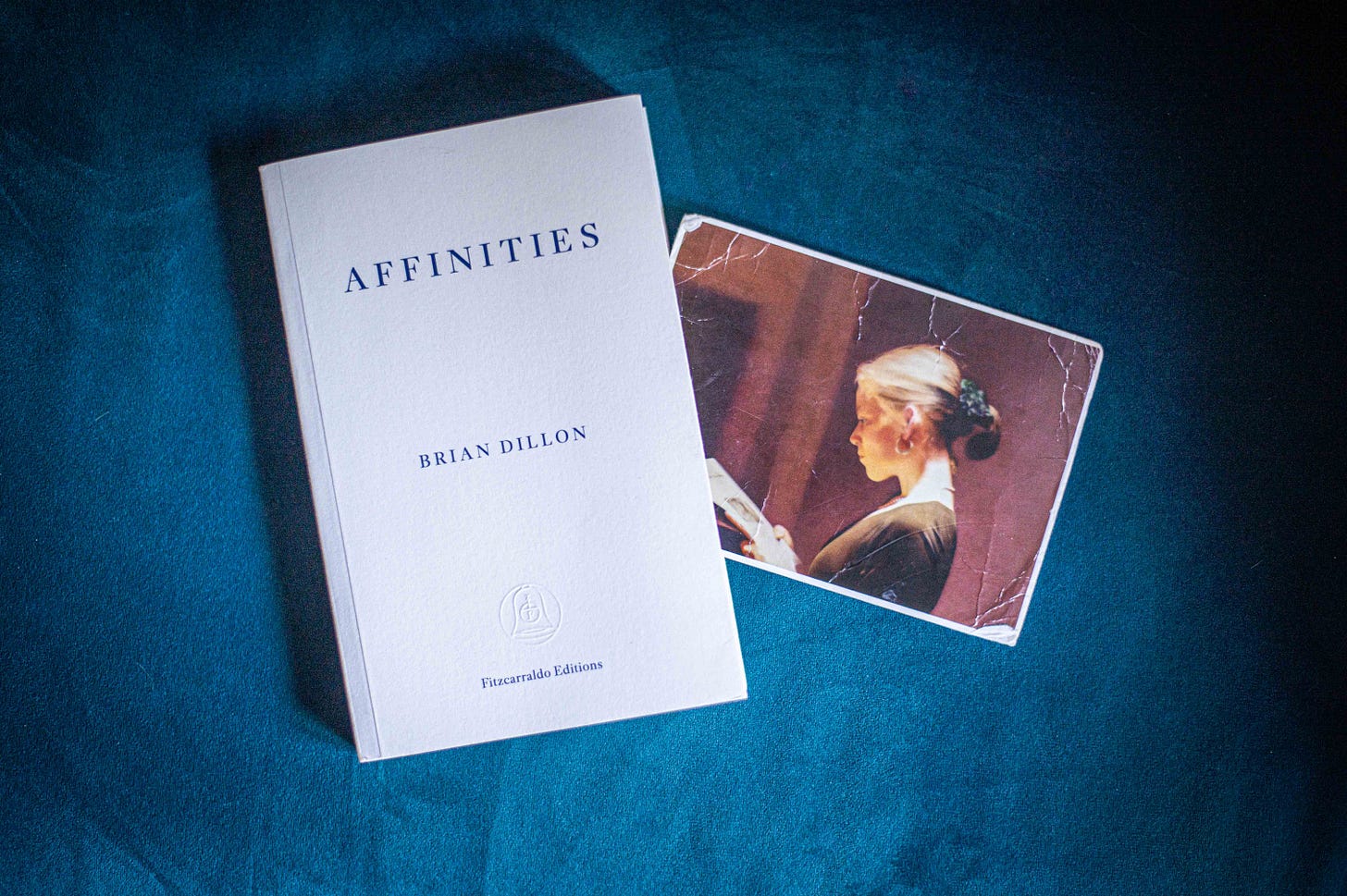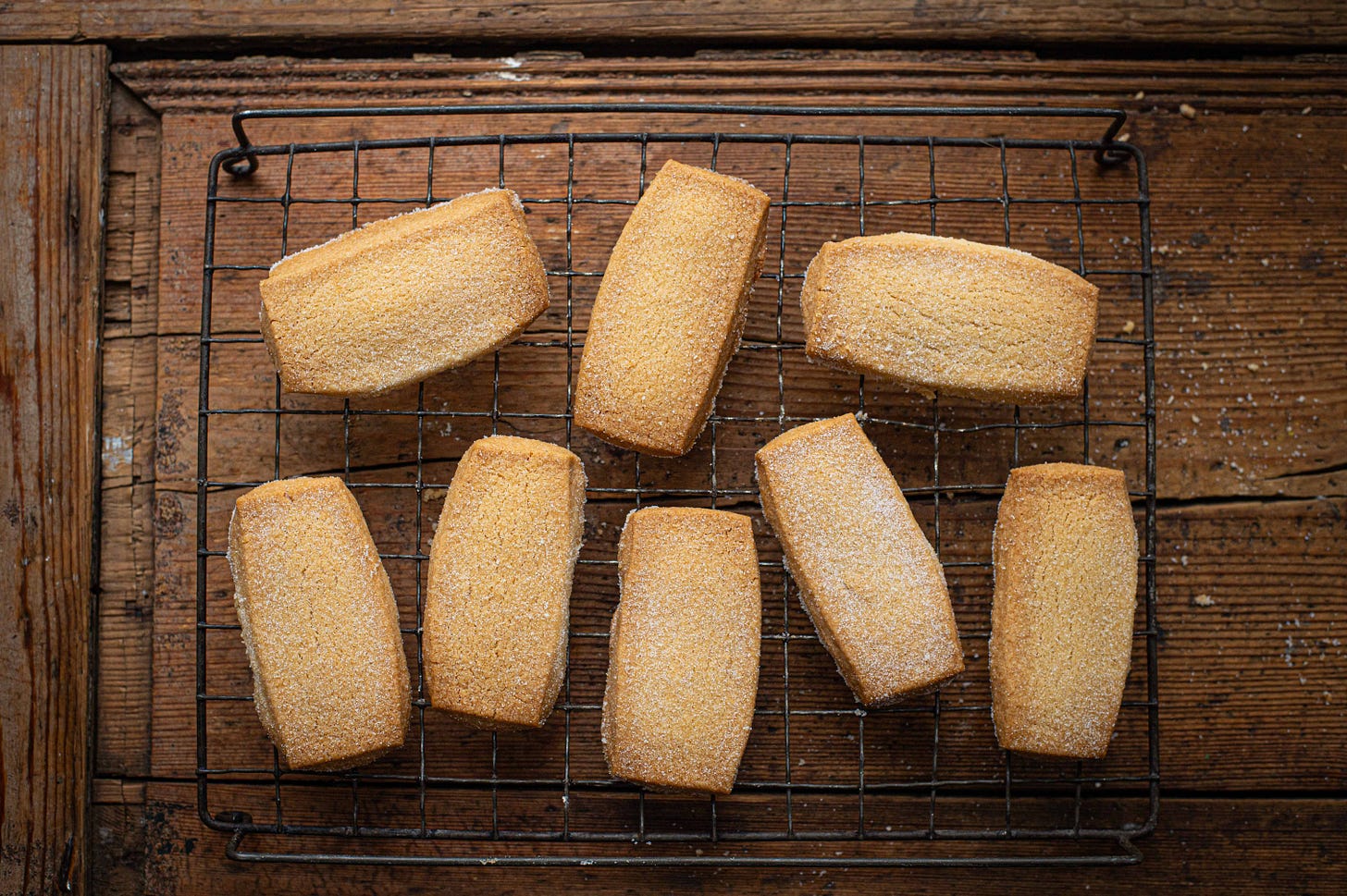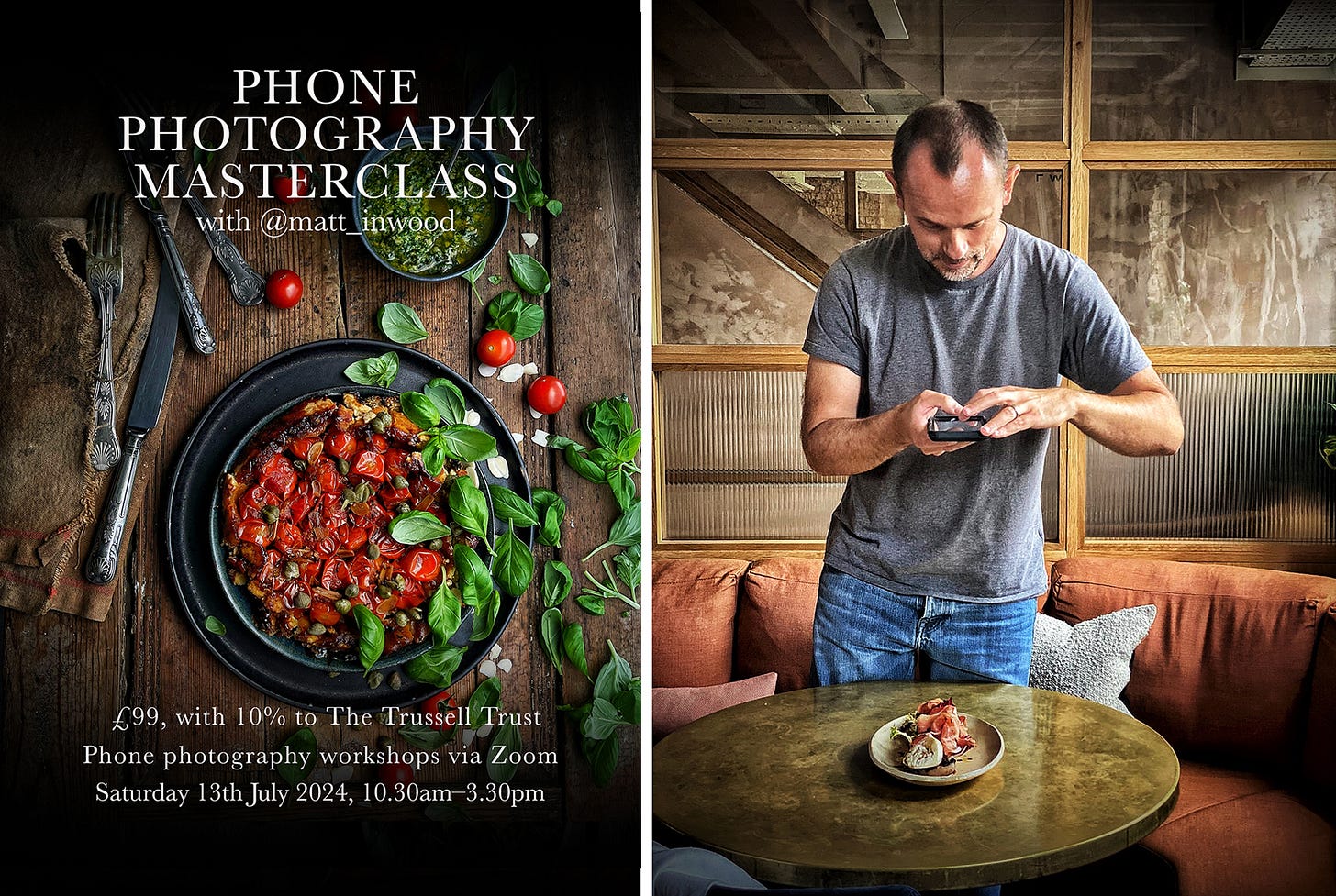Affording to eat, affinities, French Laundry shortbread
#09 | June 2024
Affording to eat
On the 4th of July, the UK will vote for 650 members and a governing party to represent them in parliament for the next five years. In the six weeks since the general election was announced, hardly a single mainstream electoral candidate has made food poverty a point of focus. No major party’s manifesto dares to suggest it could be eradicated. Gordon Brown’s recent editorial on the food bank as an emblem of Tory Britain paints a desperately sad picture, lamenting that such organisations barely existed back in 2010 yet are now at more than 2,800 in number. Between them, they distribute more than three million food parcels within a country boasting the world’s sixth wealthiest economy. And food banks are now in dire circumstances too, faced soon with the potential scenario of prioritising to feed the starving at the expense of the hungry. The existence of the food bank is a failure of state and a cruelty of political choice when austerity was neither inevitable or necessary. Terry Pratchett once eloquently explained how, quite simply, it costs more to be poor. Hoarded wealth carries on accumulating more money. The vast majority of the country rely on their labour and wits to survive; a small percentage can afford to rely solely on their riches. Amber, a good person I know through Instagram, has been helping a charity called Free Food in Sandown on the Isle of Wight. I offered to help her, by styling her recipes and creating photography for recipe cards to distribute along with the charity’s food parcels. The photograph above is for Amber’s vegetable soup. In five years’ time, I hope we can be more proud of the political choices made by those we give power to, and that those choices can begin to alleviate the suffering of the many rather than facilitate the continued wealth of those already rich.
Affinities
I’ve been slowly taking in the latest book by Brian Dillon, Affinities, over the last few weeks (see ‘Recommended Other Fragments’, below). By ‘slowly’, I’m referring not to the measuring of speed or quickness, but to the effort of concerted deliberation. Some books are improved for it and some books insist on it, releasing more and more of their wonder the longer we allow for reading. Dillon’s books always reward such an adagio pace.
Less than a fortnight ago, two activists sprayed parts of Stonehenge with orange powder paint to protest against new licenses for the production of fossil fuel. This type of protest, ostensibly targeting our culture and heritage, and not our industrial, commercial or political institutions, provoked intense collective and individual ire. By comparison, the defacement of a high street bank or slow-marching the streets of London now seemed like far more reasonable ways for those who fear imminent ecological breakdown to show their dissent. Stonehenge, we are conditioned to believe, should have been untouchable. Our test match cricket, our snooker and our fine art, too. Our culture is what we have achieved intellectually and created artistically, a blend of brain and ‘soul’ – that which makes us uniquely human. Our heritage is that which contains value and belongs not to one, but to all: something sacrosanct and unquestionably worth preserving. Each are filtered and enriched through history. A threat or attack against either is infinitely more distressing than the vandalism to the shopfront of a stock exchange company, or the inconvenience of an hour spent crawling through London traffic behind a few dozen placards and a megaphone.
I’m writing this the morning after the night of Coldplay’s Glastonbury 2024 set, where and when fireworks and smoke and ticker tape and bracelets of electronic light filled the skies, much of which will now be littering the fields of several hundred acres of Somerset farmland. The show was an incredible spectacle; joyous, celebratory.
There is affinity between these two things. Less than a fortnight ago, a two-minute explosion of orange pigment dispersed onto ancient stones to signal despair and a desperate need for action brought widespread opprobrium. Last night, a two-hour explosion of light and colour watched by tens of thousands of people was deemed acceptable in the name of entertainment. These two acts, separated by ten days, thirty-odd miles and a single county border, allow us to consider what we might think right and wrong; to dwell on the seemingly thin line between hypocrisy and honesty. Affinity is what brings one thing into conversation with another. Affinity allows us to sometimes travel indirectly in our thoughts, to jump simple comparison, hurdle barriers of received thinking – to seize upon a perceived commonality, and from there: consider or interrogate our beliefs and ideas anew.
French Laundry shortbread
I’ve been making French Laundry shortbread for about fifteen years – that is to say, I’ve been using a recipe from a book by Claire Clark, who was once Head Pastry Chef at that world-famous, three-Michelin-star Napa Valley restaurant. I should declare a bias – I worked on the book, Indulge, authored by Claire, photographed by Jean Cazals and art-directed and designed by me. Baking often owes much more to precision than other types of cooking and so when I baked these biscuits a week ago, I committed to following both ingredients list and instructions to the letter. Usually, I’d substitute salted butter, since unsalted butter is rarely to hand in the kitchen. I committed to a vanilla pod, not extract nor essence, for flavour. I cut the dough into perfect oblong strips. Once into a preheated oven, I timed fifteen exact minutes, turned the tray, then ten minutes further for the bake. I dashed them all with granulated sugar to finish. For once, I didn’t give in to speed or convenience. And more than at any recent time of making them found them once again to be just about the most perfect biscuit I know. You can try them for yourself here.
Recommended other fragments…
Just read: Confabulations, John Berger
Confabulations is a collection of essays where Berger thinks out loud about language itself. What does it mean to arrange words and symbols in the way that we do? How does one translate from one language to another and hope to retain anything of the ‘voice’ of the original? ‘Much of what happens to us in life is nameless because our vocabulary is too poor’, writes Berger, but he was adept at using his vocabulary better than most of us. In this collection, he reaches and always manages to find something new, something different.
Now reading: Affinities, Brian Dillon
Apt that a book titled Affinities has much in common with the book above. Dillon, like Berger, is fascinated by meaning and by the words and artefacts to which we assign meaning. Here, he questions what it is to claim affinity with an artefact, and what we mean when we cite a closeness of taste or sensation or desire between things. He’s a writer who doesn’t waste a word, one who opens up whole new constellations of thought with his explanations of how he sees the world, and who moves from one word, sentence and idea to the next with such clear style and constant invigoration.
Podcast/Broadcast: Eric, Netflix
Eric is set in 1980s Manhattan. It’s the story of a young boy, Edgar, who goes missing and the strained relations between his father and mother, which appears to be the reason for him absconding. His father, Vincent, is a puppeteer, whose work and family life are bedevilled by an addiction to alcohol and a troubled relationship with his own parents. Eric is the name given to the monster puppet that Vincent’s son creates in sketch form and who Vincent duly builds and brings to life in an outlandish attempt to find his son. It’s a dynamic mix of alter-ego violence and gripping multi-layered drama. Benedict Cumberbatch owns every neurotic shred of his troubled character, but McKinley Belcher III as Detective Ledroit is every bit as good as a much more subtly crafted character. The era and its iconography are exquisitely reproduced throughout, from magazine covers and billboard adverts through to subway signage and Edgar’s Walkman cassette player.
Music: Honeymoon, Lana Del Rey
One of the great joys of your children discovering music and films and books is that some of what is becoming their culture has roots in your own. A few weeks ago, my daughter left for Portugal, for a first journey abroad without her parents, and a first overseas music festival. Twelve years earlier, I was designing cookery books in a shared office in Bath with a song called ‘Video Games’ on repeat loop solidly for about three weeks. Close to midnight on the 7th of June 2024, my now-adult daughter was in tears watching Lana Del Rey sing this very same song live on stage. It was to Del Rey’s Honeymoon album that I turned the following day – a less celebrated album that my daughter loves so much – which she had previously persuaded me to listen to again and so teach me new things about part of a musical culture that now we share. It’s beautiful throughout, and in the pantheon of best James Bond themes that never quite made it, ‘24’ is probably right up there with Radiohead’s ‘Spectre’ (both of which, coincidentally enough, were rejected for the very same film).
People: Vanilla Black
Vanilla Black is Andrew and Donna who, in 2004, ‘…opened a vegetarian restaurant using money we loaned from the bank which was supposed to be for a house extension. However, we used it to buy a lease on a restaurant instead.’ Their self-titled Substack tells the story of how they lied to the bank and the path to opening, running and then (spoiler alert) closing that restaurant. If you like the Substack, you’ll also find much to enjoy in their witty and genuinely warm and chatty podcast series of interviews.
Forthcoming events…
My next Zoom-based phone photography workshop date will be on Saturday 13th July 2024. Being a subscriber to this newsletter – paid or free – entitles you to 20% off the cost of any of my workshops. Just be sure to let me know you’re reading when you get in touch. Find out all you need to know and book your place here.






That musical relationship with your child is so special isn't it - what luck people we are. And v much agree about Vanilla B
What a beautiful initiative and generous of you to gift your photography skills! Food waste is a topic that makes every part of my being angry. Hearing about the Glastonbury waste this week while some of the staff was left unfed drove me mad. There’s so much to be done from so many different angles…